Read this if you're constantly feeling down, depressed, lethargic, apathetic, uninterested, and lacking in focus. It'll explain the source of these issues in relation to vices.
From 2009 to 2016, Coca-Cola’s tagline was “open happiness.”
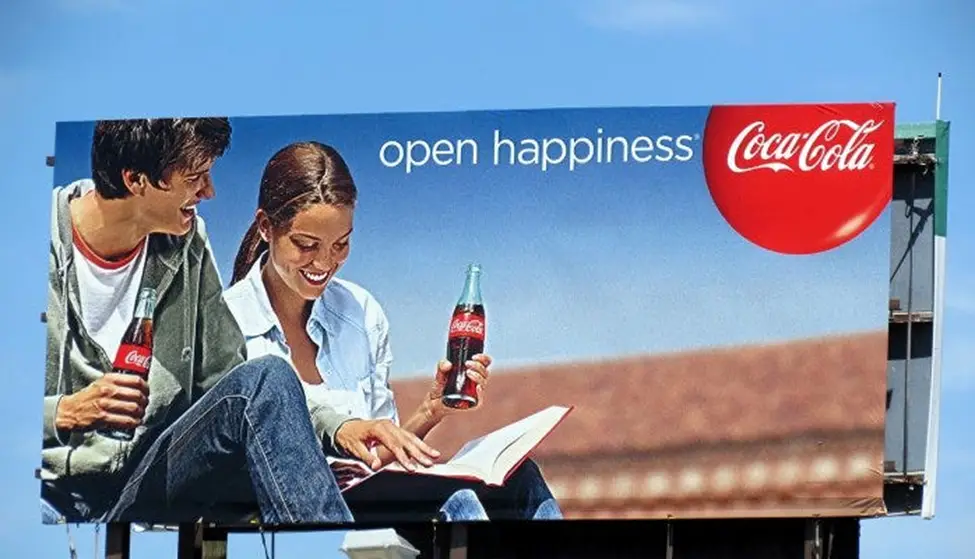
As average consumers, we're not supposed to question such things. We’re supposed to shrug and think, "That makes sense. I drink a cold Coke, I feel good. I like feeling good. That's happiness, I guess?"
Doctor Robert Lustig is not, however, your average consumer.

An endocrinologist who treats patients with metabolic disorders—many of whom are now children with "adult" diseases like type II diabetes—Lustig can't let such slogans slide. To him, these aren't innocent catchphrases. They're evidence of a calculated deception being perpetrated by society's most powerful entities: Big Food, Big Tech, and Big Pharma.
In his 2018 book The Hacking of the American Mind, Lustig exposes how these industries deliberately blur the line between happiness and pleasure. They sell us products—from sugar water to social connections—with the promise of happiness… when all those things are capable of doing is doling out fleeting moments of pleasure.
And this bait-and-switch hasn't just inflated our waistlines or screen time numbers. It's created a devastating societal crisis. As Lustig puts it:
“The consequences have been dire: dual epidemics of addiction (too much pleasure) and depression (not enough happiness).”
-+-+-
So why is this relevant? Why start a webbook about habits and productivity with talk of happiness and pleasure?
Well, in the intro webpage, I made a pretty bold claim: our vices provide shortcuts to survival-affirming rewards, tricking our brains into thinking we're thriving when we're not.
The result? Suppressed motivation—that familiar "ugh, I just don't feel like it" feeling when we sit down to work.
This traps us in a procrastination cycle: a lack of motivation leads to time-wasting, which further kills motivation, leading to more time-wasting, and so on.
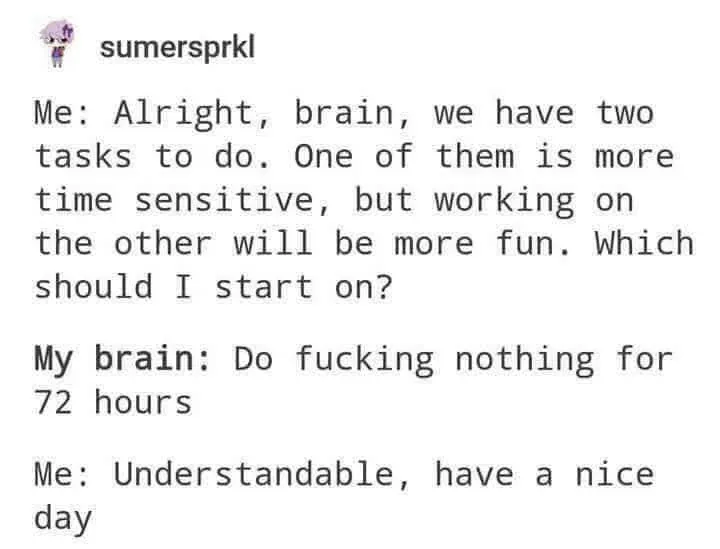
This sucks for us—but it's a goldmine for the industries behind these vices.
But tt gets worse. Turns out there's another hidden consequence—one that’s just as damaging to our ability to get things done.
And it all comes down to a little molecule called serotonin.
The Brain's Chemical Tug of War
Serotonin is often called the "happiness molecule."
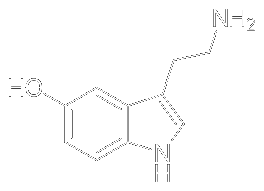
It creates feelings of contentment and well-being while stabilizing your mood—helping you feel balanced.
Too little leads to depression. Cue those painfully relatable memes.
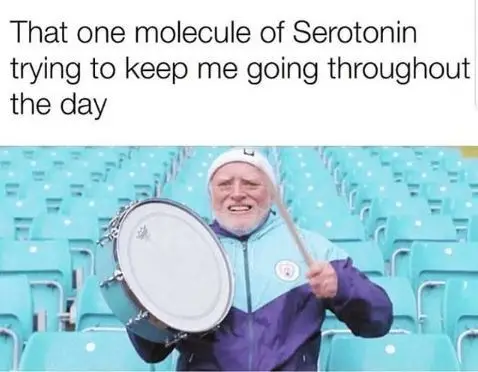
Here’s the thing about this little molecule: most serotonin is produced in your gut, but can't reach your brain through your bloodstream. It can't cross the blood-brain barrier.
So your brain has to manufacture its own. It does this using the amino acid tryptophan as raw material.
And tryptophan only comes from diet and must cross that blood-brain barrier by hitching rides on "Amino Acid Transporters"—which you can think of as tiny cargo ships.
Still with me?
Okay, so turns these same cargo ships also transport phenylalanine and tyrosine—the raw materials for dopamine. That's the neurotransmitter driving you to grab your phone, open TikTok, and scroll endlessly.
But here's the critical bug: The capacity of these cargo ships is extremely limited. There's direct competition in your brain between the production of serotonin (happiness) and dopamine (pleasure-chasing).
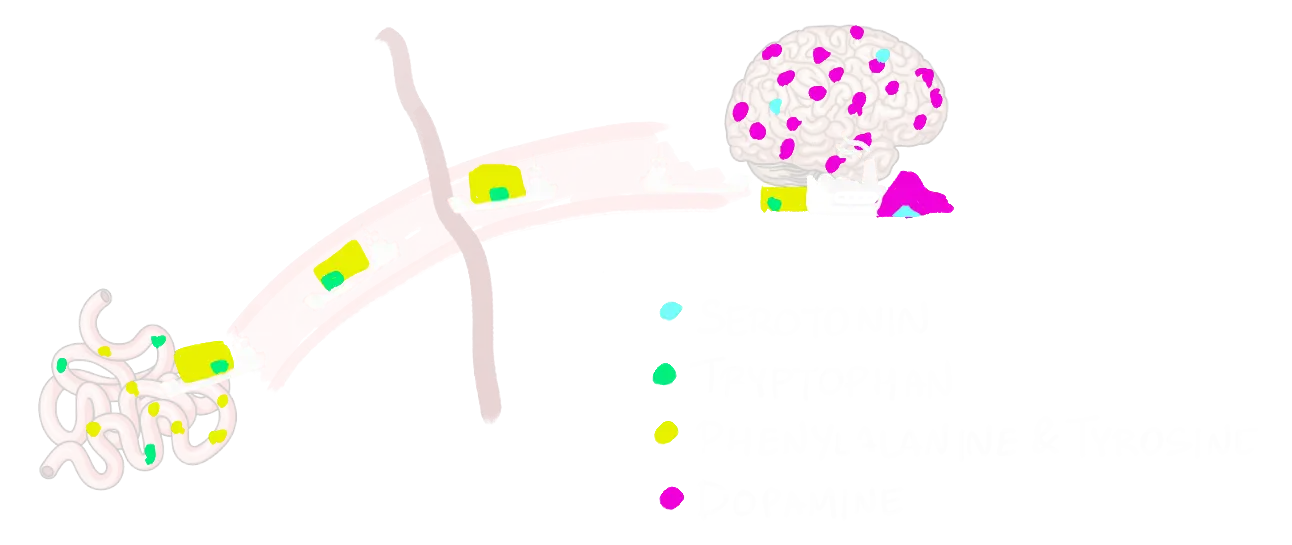
Still with me?
Okay, so turns these same cargo ships also transport phenylalanine and tyrosine—the raw materials for dopamine. That's the neurotransmitter driving you to grab your phone, open TikTok, and scroll endlessly.
But here's the critical bug: The capacity of these cargo ships is extremely limited. There's direct competition in your brain between the production of serotonin (happiness) and dopamine (pleasure-chasing).
The cost of unhappiness
What happens when you spend your entire morning "pursuing" one reward after another?
Your brain burns through massive amounts of dopamine. To keep up, it prioritizes shipping in more raw ingredients—directly sacrificing the materials needed for serotonin production.
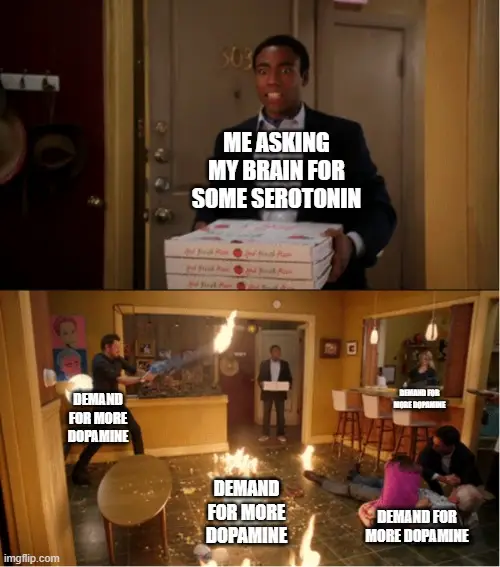
But this webbook is about productivity. And becoming productive doesn't require you to be all chipper. You don't need to feel ecstatic to study for an hour or make progress on a project.
You do, however, need a baseline level of happiness.
You can't function effectively when utterly depressed. When a 200-pound weight is pressing you down, you can't expect yourself to get up and go.
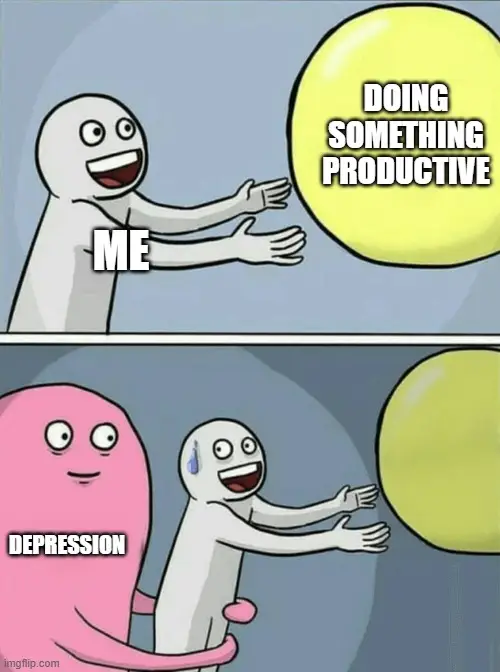
You need to feel like there's something, anything, worth looking forward to—something justifying the effort.
But when you're deeply unhappy—when it feels like there's not a single molecule of serotonin floating through your brain—that minimum threshold becomes impossible to reach.
It's like, why even bother?
So you don't.
In short, your vices aren't just stealing your time and attention—they're literally robbing your brain of its ability to feel happy. And when you don't feel happy, getting work done becomes nearly impossible.
Stolen Focus
So far we've established how vices impact our motivation and happiness levels. But that’s not all.
There's emerging research on the long-term effects of modern tech in terms of our attention span, our ability to concentrate deeply, and mounting cognitive disorders like ADHD.
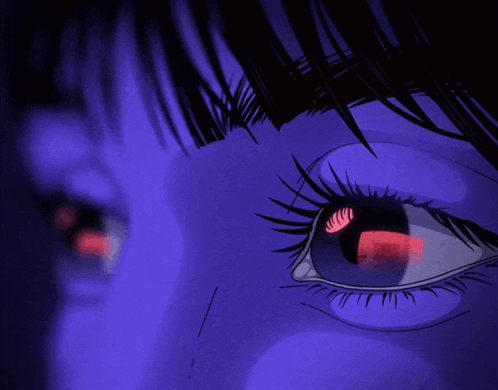
Yet, for the most part, the link remains inconclusive.
In Stolen Focus, Johann Hari chalks it up to a lack of solid information. Researchers simply lack the data from previous generations to make a definitive past vs. present comparison.
So maybe it's just who you are and how your brain is wired...
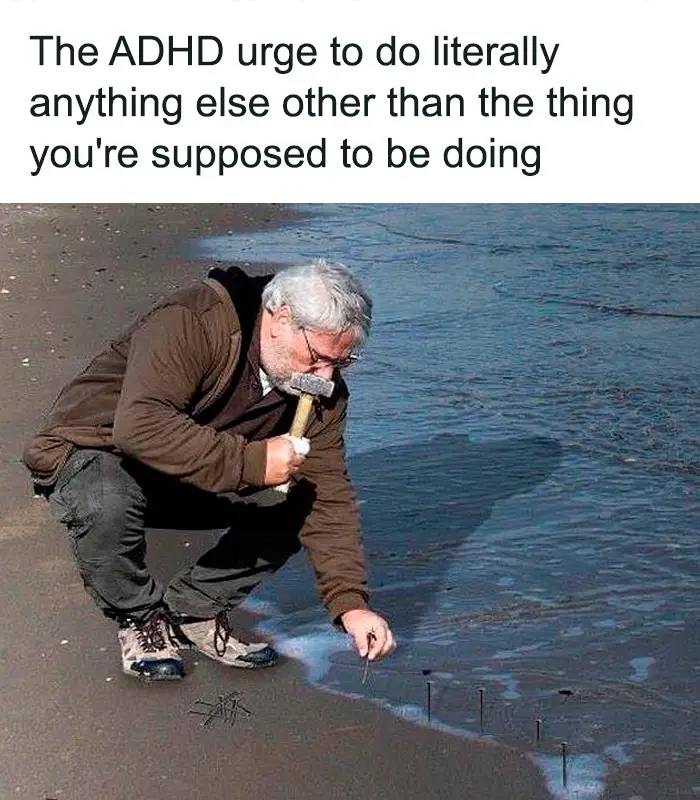
Or maybe all those hours of constant stimulation have spoiled your intellectual stamina.
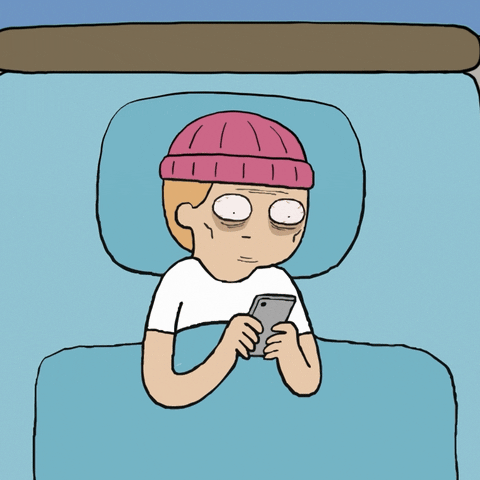
At the very least, I think you can concede that constantly being pulled left and right by little urges to interrupt your work session—to check this newsfeed or hop on that app, just for a minute—is affecting your productivity. Having to constantly battle temptations doesn't help with concentration.
Vices are eroding your ability to focus and concentrate deeply.
Suppressed Interest
I don't think it's controversial to suggest our society suffers from thinning attention spans.
This new reality that sparked an arms race between social media platforms. If the question was, "How can we deliver the most titillating content while requiring minimal effort, decision-making, and attention?" The answer, for now at least, has been short-form video. TikTok leads with its 1.6 billion active users.
This type of content epitomizes our world today.
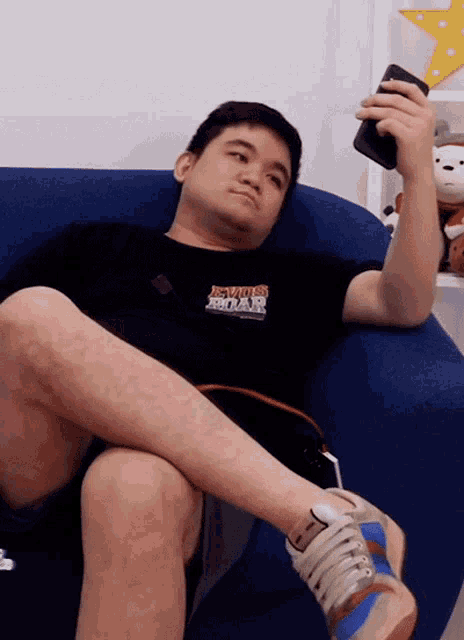
It's like now the "work" of consuming media—choosing what to watch, paying attention until a satisfying payoff, deciding what to consume next—has become too much. Much better to have an algorithm serve us the best possible videos on an endless conveyor belt. Better still if each payload is delivered in 30 seconds or less.
We now have vice versions of our vices—artificial versions of already artificial flavors.
The reason is simple: we've acclimated to a certain ease and speed of reward delivery. Anything harder or slower triggers boredom, irritation, impatience, and the impulse to move on.
So when you power through low motivation to start working, only to find yourself bored, uninterested, and impatient—that's another consequence of your vices.
This is especially true if that work or creative activity once felt fulfilling and engaging but has inexplicably lost its appeal.
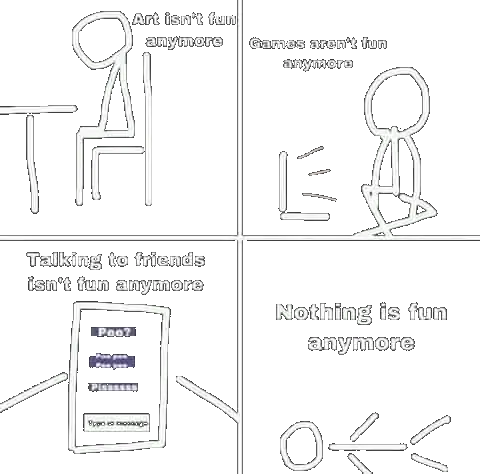
Vices lead to a loss of interest.
The Fundamental Problem
So.
Chances are, you’re reading this hoping to fix your tech-overuse and procrastination issues. Simple enough, right? Less time burned through mindless scrolling. More productivity and achieving your goals.
Maybe you've also noticed other impacts—how social media warps your body image or how gaming makes you angry and messes with your sleep.
But by now, I hope you're really grasping how vices cut way, way deeper than that.
Vices are an insidious influence. Not unlike a hidden poison drip, they have the power to completely incapacitate you—all without you ever feeling a damn thing.
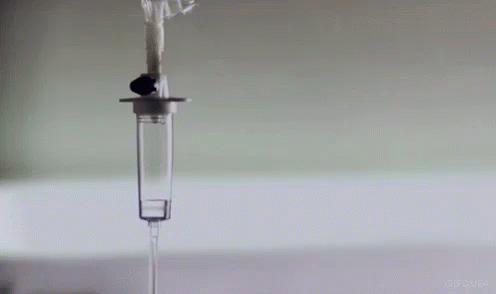
And they do this by triggering a cascade of soul-crushing symptoms:
- Lethargy and a chronic lack of motivation.
- Unhappiness and apathy.
- Disinterest in what was and should be interesting.
- Attention issues and the inability to concentrate deeply.
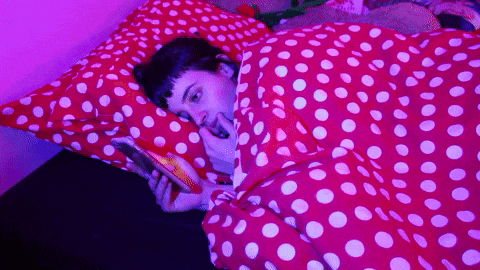
When these symptoms combine and reinforce each other, what you experience isn't just you feeling a bit "lazy" or "tired. It's essentially a disorder. A legitimate mental-health disorder that directly impairs your functioning and emotional well-being.
There's no official name for this, but there should be. So I call it Vice Induced Depressive Syndrome, or VIDS for short.
Why you're so stuck in a rut
Vices cause VIDS, by definition.
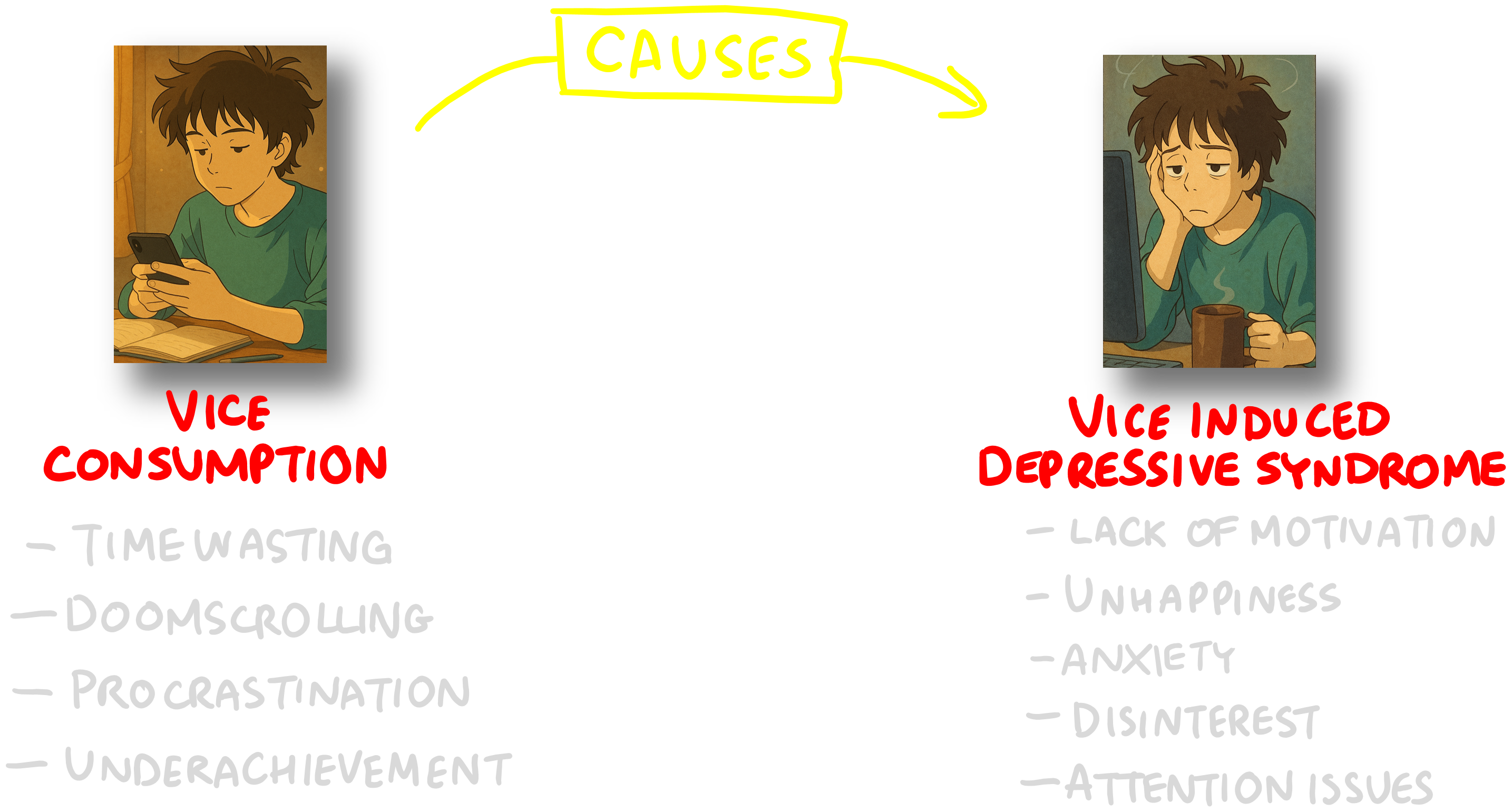
But the reverse is equally true. VIDS causes you to consume vices. Its symptoms drive you to indulge.
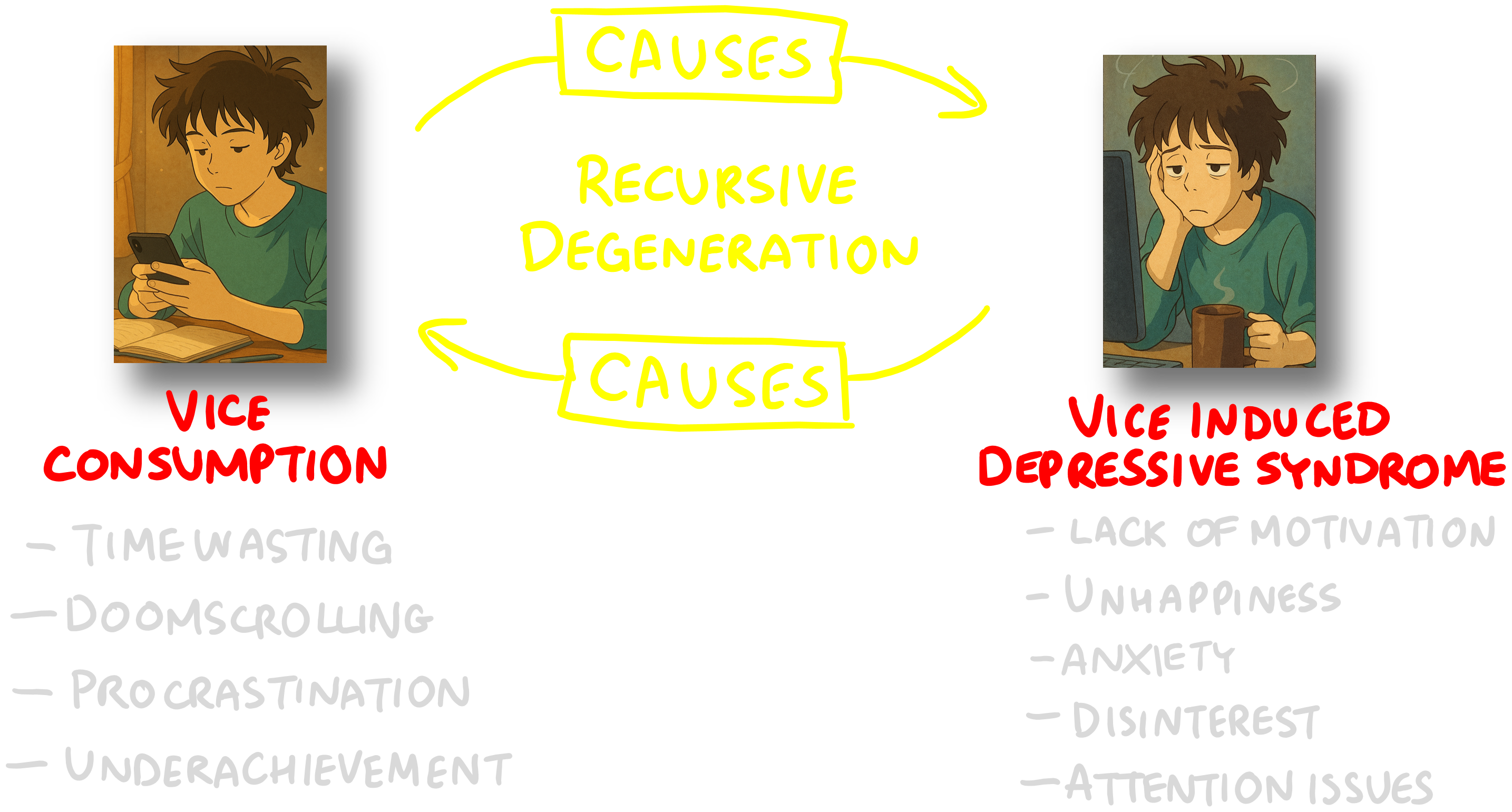
And this is what's happening to you. You're experiencing VIDS symptoms, and it's these sensations that are an invisible weight crushing your potential. It's these sensations that are driving you to cycle through the same predictable patterns, to repeatedly put off everything—absolutely everything—that matters.
It's not about your character flaws. It's not about you being weak, lazy, careless, or lacking discipline. And it's certainly not about "not wanting it bad enough."
It's Vice Induced Depressive Syndrome. It's the collection of symptoms that cause you to procrastinate and coast through life in a mediocre existence.
This is your real problem—your true affliction.
This is what you need to target and treat.
This is what the Habit Reframe Method is designed to do.
